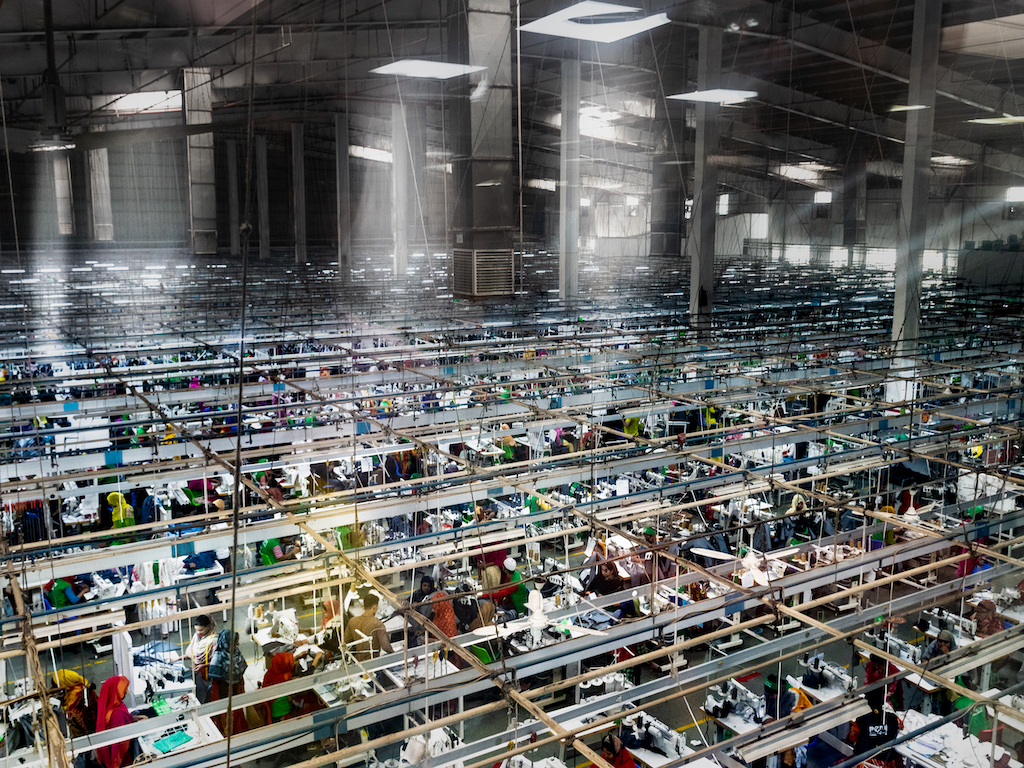3 Mins Read
Big fashion labels are hopping on the sustainable bandwagon, backing a new recycling scheme in Bangladesh garment factories. The program will see brands like H&M, Bershka, Marks & Spencer, Bestseller and others forge commercial partnerships with textile and garment manufacturers and recyclers to reintroduce post-production fashion waste back into their products, as well as find new ways to solve the pile-up of deadstock as a result of the pandemic.
Over 30 of the world’s biggest fashion brands are now joining a new initiative aimed at capturing and reusing textile waste in Bangladesh, in the latest push organised by the Copenhagen-based nonprofit Global Fashion Agenda (GFA) to make the industry go circular. Among some of the labels participating in the new Circular Fashion Partnership include Inditex-owned Pull & Bear and Bershka, Bestseller, H&M Group, Marks & Spencer (M&S), OVS, C&A and Target Australia.
They will be working with GFA and its partners, which includes online waste tracking platform Reverse Resources, The Bangladesh Garment Manufacturers and Exporters Association (BGMEA) and P4G, an organisation focused on delivering the U.N. Sustainable Development Goals (SDGs).
Recyclers who are joining the program include H&M and Patagonia-backed Finnish biotech Infinited Fiber Company; Lenzing AG, the makers of Tencel; Swedish startup Renewcell known for its Circulose fibres; among many others.
Bangladeshi factories typically produce larger volumes of the same item, meaning that waste is more standardised. Therefore, Bangladesh can be a global leader in the area of circular economy.
Miran Ali, Director, BGMEA
Together, the manufacturers, brands and recyclers aim to develop and implement new systems to recapture and redirect post-production fashion waste back into the supply chain to make new products, as well as finding solutions to deal with the coronavirus-related pile-up of deadstock.
In April 2020, many of the biggest brands in fashion, including brands like Walmart and Primark, had to fight back criticism over their cancellation of orders from factories in Asia that have either been completed or already in the manufacturing stage, threatening already vulnerable textile workers with the loss of income alongside the threat of a deadly disease.
M&S, Bestseller and C&A – three companies who are now participating in the new Circular Fashion Partnership – were also called out for failing to pay workers during the pandemic.
Bangladesh is the focus in this current recycling program because despite possessing the most in-demand and recyclable fashion waste of any textile producing country, the majority of the waste is being exported or downcycled – in what the GFA calls a “substantial opportunity” of value generation being lost for the domestic economy.
Brands are making strong commitments and targets towards circularity however, there are not many scalable options for circulating and handling waste.
Ann Runnel, CEO, Reverse Resources
“Bangladeshi factories typically produce larger volumes of the same item, meaning that waste is more standardised. Therefore, Bangladesh can be a global leader in the area of circular economy,” explained Miran Ali, director of the BGMEA.
GFA’s ability to attract a large cohort of big fashion players to join the initiative comes amid the pressure that the industry has been facing over its polluting operations in recent years. Figures showing the industry’s role in fuelling 10% of the global carbon footprint and the truckload of textiles being landfilled every single second have caused an uproar amongst increasingly conscious consumers, vowing to hold brands accountable over climate action.
But until now, experts say that large-scale projects such as this latest recycling program in Bangladesh have yet to be implemented to ignite industry-wide shifts.
We can demonstrate a strong business model for circularity that can be mirrored by others in the future.
Morten Lehmann, CSO, GFA
“Brands are making strong commitments and targets towards circularity however, there are not many scalable options for circulating and handling waste,” said Ann Runnel, CEO of Reverse Resources. “In this project we turn our attention to practical solutions…Post-production waste is currently the low hanging fruit for supporting this emerging recycling industry to start closing the loop at scale.”
GFA hopes that the successes from this program will provide guidance to exporting circular models to other textile producing countries, such as Vietnam and Indonesia, in the years ahead.
“To establish a circular fashion system we need to reimagine the production process so that it appreciates the value of textile waste,” commented Morten Lehmann, CSO of the GFA. “I am confident that we can demonstrate a strong business model for circularity that can be mirrored by others in the future.”
Lead image courtesy of Fahad Faisal via Wikipedia.




